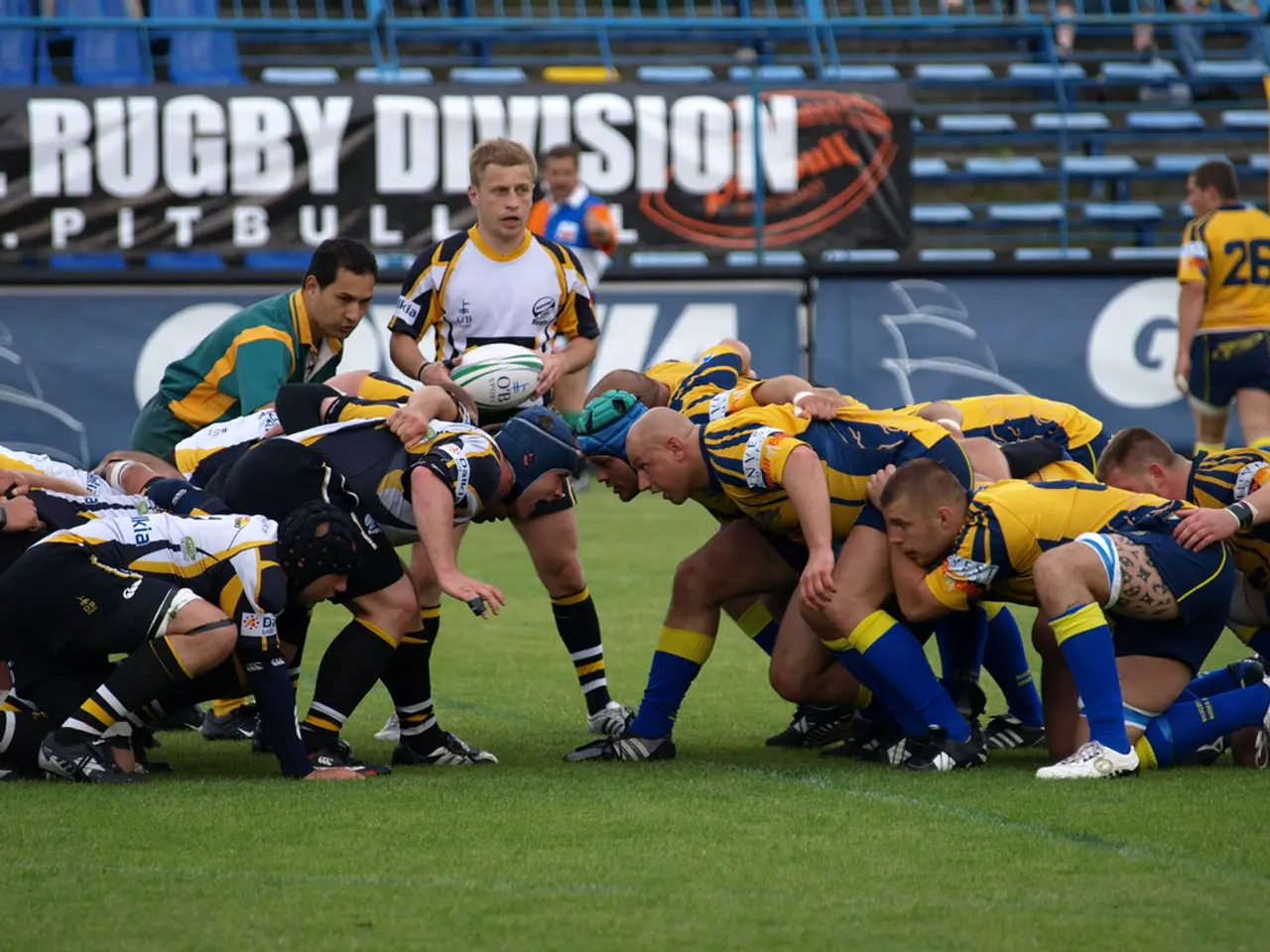Protesting to the referee is not permissible in rugby.
From Child to Rugby Star: José Lima's Journey and the Rugby Ethos
José Lima, a seasoned rugby player, openly admits his rowdy past. "I was a kid who was a bit reckless, a bit off-the-wall, with plenty of aggression. Rugby taught me the significance of respect for authority and the importance of abiding by the rules, even in my relationships with my parents," he says.
A coach made José wear the referee jersey in kids' games to understand the ref's plight. "I had parents complaining about my calls, and that taught me that being a referee wasn't a piece of cake. After that, I vowed to modify my behavior, dive deeper into the rules, cut down on fouls, and improve as a player," he recalls.
José emphasizes, "In rugby, you can't argue with the ref. He'll give you a yellow card, send you to the bench for 10 minutes, and take a toll on your team during that time. If you keep whining, you could lose 10 to 20 meters, and in rugby, that's a crucial distance."
He continues, "There's more than just the referee's punishment. Your teammates warn you, too. 'You've already committed a foul, and now you're still whining, and we're losing another 10 meters? That helps too — it's something that could be effective in football as well"
José is adamant that rugby isn't a violent sport. "Yes, it's tough; there's a lot of contact, speed, but it's safe thanks to numerous rules protecting us. A player causing a head-on clash with another is immediately dismissed. Moreover, there's a strong sense of camaraderie among players. Intentional harm is rare," he asserts.
He recalls an incident against South Africa, where he was knocked unconscious. "The culprit came with speed and collided with my head, but unintentionally. He was kicked out immediately, served an eight-game ban due to previous incidents, but he visited me in the hospital, apologized, and that speaks volumes about the spirit of rugby. I can't say for certain that such a naturally empathetic response would occur in football or other sports," he concludes.
Insights: Rugby and football both use technology to aid referees in making decisions, but there are significant differences in their implementation and scope. Rugby's system, called TMO, tends to be more flexible, collaborative, and integrated into the rhythm of the game compared to football's VAR, which is more formal, protocol-oriented, and occasionally controversial due to its effect on the game's flow and decision finality.
In the context of his own rugby journey, José Lima reflects on the importance of understanding the referee's role, stating, "I learned that constant arguing with the referee in football isn't productive, and it can cost valuable meters on the field."
Expanding on the ethos of sportsmanship in rugby, José highlights the camaraderie and empathy among players, adding, "Even in sports like football, such a naturally empathetic response from an opponent after an accidental collision could lead to a more harmonious playing environment."






